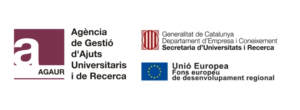Abstract
Demand for natural gas is continuously growing despite it is a fossil fuel that should be replaced by renewable fuels in a relatively-near future. Up to 15% of replacement can be covered by mature technologies like biogas upgrading to biomethane. To cover the rest, production of synthetic natural gas will become necessary. Therefore, this technology is expected to experience a widespread development during the next decade.
Synthetic natural gas production consists on the catalytic hydrogenation of carbon dioxide (CO2), which produces methane (‘natural gas’) and water. A promising strategy is to implement decentralized reactor units close to CO2 emission sources, ie. waste water treatment plants, rural digesters, cement industry, power units, and alcohol fermenters. Consequently, compact micro-reactor technology is the most suitable option to consider for such small-to-medium production plants.
So far, methanation catalyst industry has not been developed mainly because the market is still too small for large catalyst producers to step in and because R&D centers are not focused on product scaling-up. In contrast, we have implemented a highly active catalyst, with an optimized formulation, in an industrial relevant environment. The implementation was carried out in the largest pilot plant ever built in Spain with the industrial partner Naturgy (Sabadell, 37 kW). Then, we modified our preparation method to be able to deliver larger quantities (1 kg) in shorter periods (1 to 3 months) to a leading reactor manufacturing company (Ineratec GmbH). However, we have detected that our catalyst material does not satisfy other potential customer’s needs due to its current shape and form.
Thus, the goal of the present project is to expand the portfolio of our optimized catalysts to be able to fit in to a wider range of potential customer’s reactors (from 100-μm microreactors to 5-mm conventional reactors). To accomplish this goal, it is necessary to synthesize the material onto which our catalyst is supported. Thus, new equipment is needed and understanding the role of new components (active material, binder, promoter, porous support) will become crucial. An iterative process of catalyst preparation and testing at the potential customer lab/pilot setups will be performed, at least with two customers (Tecnalia and Ineratec). Finally, implementation of the catalyst prototype in a real demonstration plant will be the main milestone of the project.
Duration
18 months
Funding
The Catalan’ Government’s Agency for Management and of University and Research Grants (Agencia de Gestió i Ajuts Universitaris i de Recerca (AGAUR)) has awarded this the project with a Producte grant. The project is co-financed by the European Union through the European Regional Development fund (ERDF) and supported by the Secretary of Universities and Research of the Ministry for Business and Knowledge of the Government of Catalonia.



